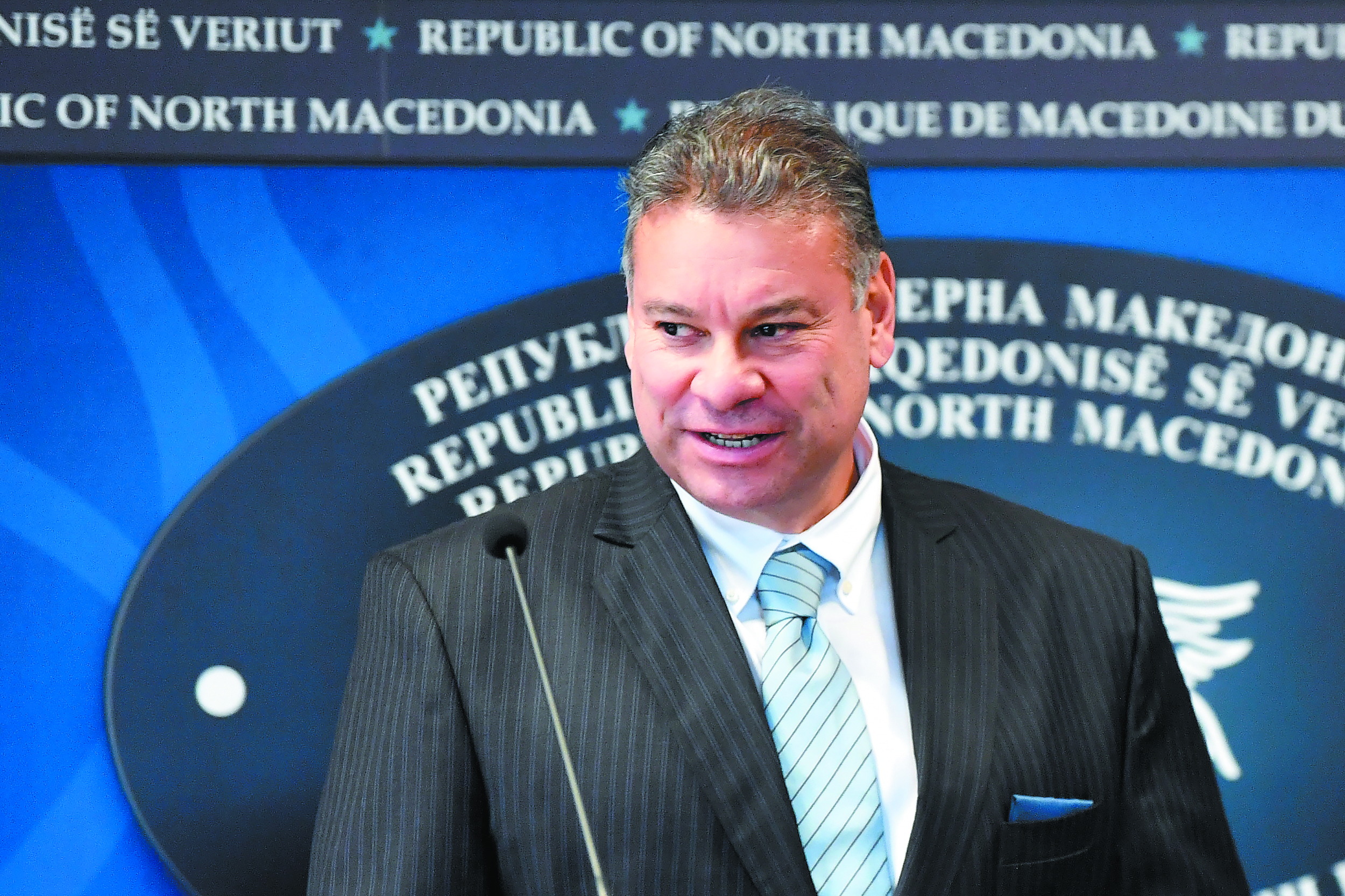The United States has received assurances from VMRO-DPMNE, the party that won the recent elections in North Macedonia, that the country will continue on its European course. Gabriel Escobar, the U.S. Deputy Assistant Secretary and Special Representative for the Western Balkans, made this statement during an online interview with the European Center of the Atlantic Council.
Escobar noted that both the U.S. and Europe conveyed their expectations to Gordan Siljanovska-Davkova, North Macedonia’s new president, following her inauguration. He emphasized that Washington and Brussels anticipate North Macedonia to maintain its European trajectory and remain a committed member of NATO.
State Department Receives Assurances from VMRO-DPMNE on North Macedonia’s European Path
By @PetrosKas #tovimacom #Politics #Greece #NorthMacedonia pic.twitter.com/4GJP6bpPOF— tovima.com (@tovimacom) May 22, 2024
“Believe me, they have been a committed member of NATO. And we’ve received assurances from all levels of the party leadership, of the main party that won the elections, that they will remain committed to the European path,” Escobar said.
When asked about VMRO-DPMNE’s victory and concerns regarding the Prespa Agreement, Escobar reaffirmed his belief that North Macedonia’s path to Europe would continue. “There is an increasing realism that there is no other alternative. So, I think we will see, and I hope to see, that path continue as the main policy objective of the new government. And as they do, they can expect American partnership,” he stated.
Greece has linked North Macedonia’s progress towards EU membership to the full implementation of the Prespa Agreement, particularly regarding the use of the country’s constitutional name. This follows President Siljanovska-Davkova referring to the country as “Macedonia” during her inauguration.
Siljanovska-Davkova’s cabinet announced that the president will adhere to the official use of the constitutional name, but in her public appearances “she has the right to use the name Macedonia, as an act of personal right to self-determination and self-identification.”
The Greek Ministry of Foreign Affairs described Siljanovska-Davkova’s use of “Macedonia” as a flagrant violation of the Prespa Agreement. “Greece categorically states that further progress in its bilateral relations with North Macedonia, as well as progress in its European course, depends on the full implementation of the Prespa Agreement and mainly on the use of the country’s constitutional name,” the Greek MFA said.
When asked by To Vima about President Siljanovska-Davkova’s stance on the Prespa Agreement, the State Department responded, “the United States remains firmly committed to the Prespa Agreement and the Euro-Atlantic integration of North Macedonia.”
The State Department’s press office added that as a new government is formed and a prime minister is elected, the United States will continue to emphasize the importance of respecting international agreements and the benefits of full membership in the European Union.



